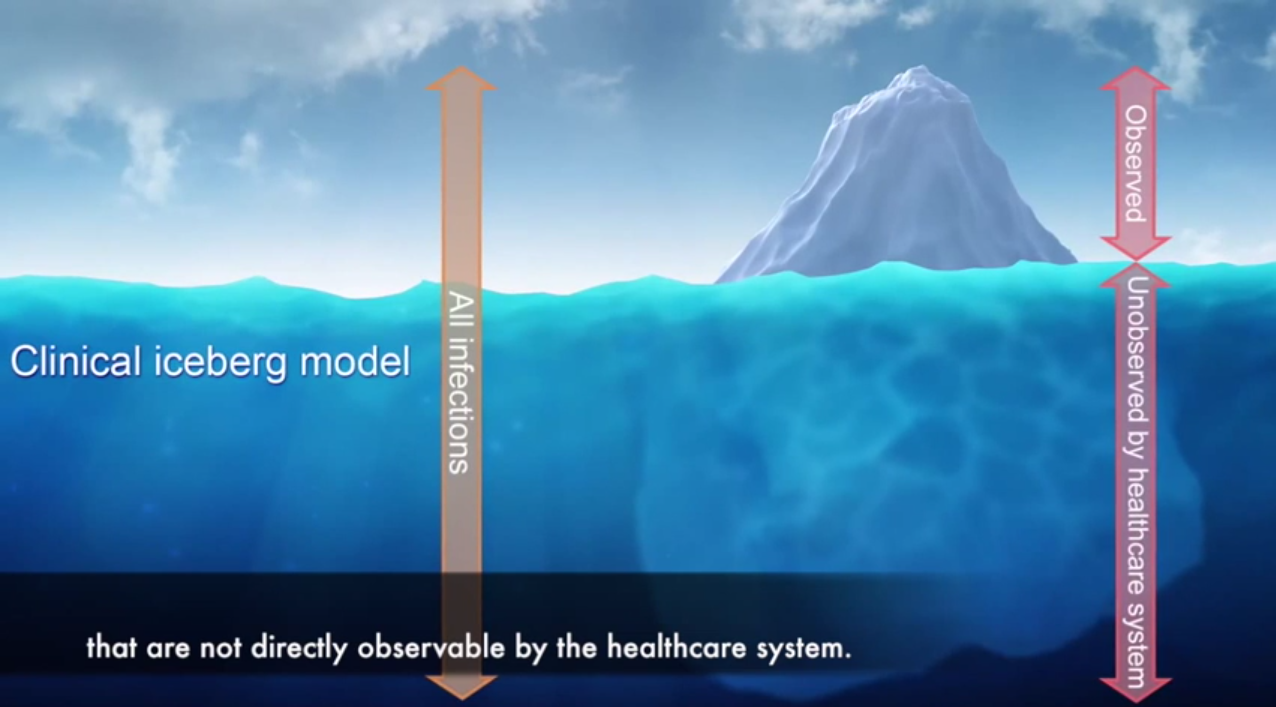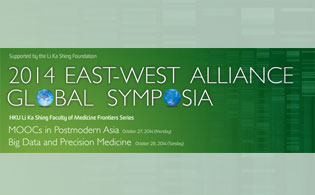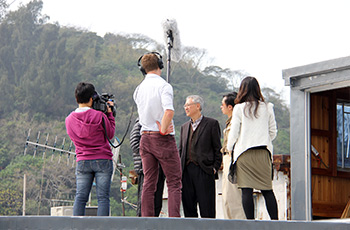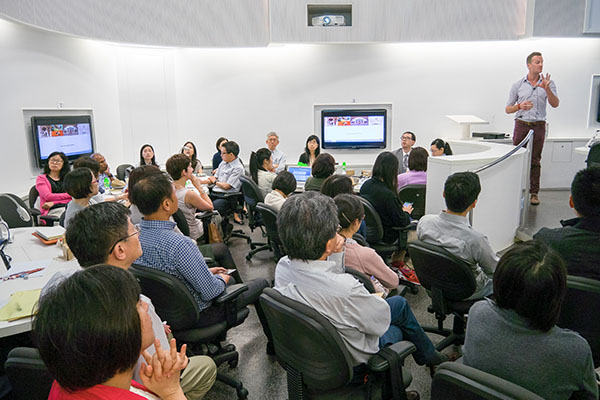HKUx Epidemics Preview 3
What is Digital Syndromic Surveillance? How do vaccines work? Join us in the HKUx MOOC on Epidemics to find out more.
Join us in the HKUx MOOC on Epidemics to find out more
[hana-flv-player
video=”https://tl.hku.hk/wp-content/uploads/2014/09/epidp3.mp4″
width=”584″
height=”368″
description=”HKU Epidemics MOOC Sneak Preview”
clickurl=”https://www.edx.org/course/hkux/hkux-hku01x-epidemics-1778″
clicktarget=”_blank”
player=”5″
autoplay=”false”
loop=”false”
autorewind=”true”
splashimage=”https://tl.hku.hk/wp-content/uploads/2014/09/Screen-Shot-2014-09-08-at-2.36.32-pm.png”
/]
HKUx Epidemics Preview 2: Spread of Infectious Diseases
Are there many infectious diseases unobserved by our health care systems? How can the immunity of one individual protect not only the individual himself, but also reduce the risk of infection of everyone in the population? Join us in the HKUx MOOC on Epidemics to find out more.
Join us in the HKUx MOOC on Epidemics to find out more
[hana-flv-player
video=”https://tl.hku.hk/wp-content/uploads/2014/08/HKU-Epidemics-MOOC-Sneak-Preview-Spread-of-Infectious-Diseases-subtitled.mp4″
width=”584″
height=”368″
description=”HKU Epidemics MOOC Sneak Preview”
clickurl=”https://www.edx.org/course/hkux/hkux-hku01x-epidemics-1778″
clicktarget=”_blank”
player=”5″
autoplay=”false”
loop=”false”
autorewind=”true”
splashimage=”https://tl.hku.hk/wp-content/uploads/2014/08/Screen-Shot-2014-08-27-at-7.24.50-pm.png”
/]
HKUx Epidemics MOOC Sneak Preview: Origin of Infectious Diseases
What do food production, international travel, exotic animals, used tires, industrial air conditioning have in common when it comes to epidemics?
Join us in the HKUx MOOC on Epidemics to find out more
[hana-flv-player
video=”https://tl.hku.hk/wp-content/uploads/2014/08/epide2.mp4″
width=”584″
height=”368″
description=”HKU Epidemics MOOC Sneak Preview”
clickurl=”https://www.edx.org/course/hkux/hkux-hku01x-epidemics-1778″
clicktarget=”_blank”
player=”5″
autoplay=”false”
loop=”false”
autorewind=”true”
splashimage=”https://tl.hku.hk/wp-content/uploads/2014/08/Screen-Shot-2014-08-13-at-3.42.24-pm.png”
/]
HKU Li Ka Shing Faculty of Medicine Frontiers Series – East-West Alliance Global Symposia

Location: William Mong Man Wai Block, Li Ka Shing Faculty of Medicine, Sasson Road, Pokfulam, Hong Kong
MOOCs in Postmodern Asia (Oct 27, 2014)
Big Data and Precision Medicine (Oct 28, 2014)
Supported by Li Ka Shing Foundation; Organized by HKU on behalf of the East-West Alliance (EWA); Co-organized by London School of Hygiene and Tropical Medicine (LSHTM) and China Medical Board (CMB).
The 2014 East-West Alliance Global Symposia to be held on October 27 and 28, 2014 will be hosted by HKU Li Ka Shing Faculty of Medicine on behalf of the East-West Alliance (EWA) and co-organized by London School of Hygiene and Tropical Medicine (LSHTM) and China Medical Board (CMB). For the programme and online registration, please visit . www.med.hku.hk/ewa2014.
Talking Heads and Beyond
A post from the e-learning Pedagogical Support Unit (EPSU)
Sal Khan of Khan Academy fame may recommend recording natural speech rather than planning every word of his instructional videos, but a fully scripted video seems to be the preferred approach for many MOOC educators.
As part of the University of Hong Kong’s small team tasked with helping faculties prepare HKU’s first MOOCs, we recognize that learners have individual preferences about how best to gain subject-related knowledge. So far we have adopted three different approaches when recording professors’ MOOC input:

‘Talking head’ videos: Many educators’ initial choice, a short, chunked ‘talking head’ video is a familiar option but still offers room for creativity and customization based on individual needs. Professor Gabriel Leung from the Li Ka Shing Faculty of Medicine and colleagues in their Epidemics MOOC have gone for the scripted approach, while Professor Hansen from the Philosophy Department in Humanity and Nature in Chinese Thought prefers to use key words as a cue. What both MOOCs have in common is recording the professors in front of a green screen so that still images and motion graphics can be added later on to enhance the learning process.
Panel Discussions: We are all familiar with groups of experts on TV sitting round a table discussing topical issues, but panel discussions also have a place in MOOCs. Professor David Lung from the Faculty of Architecture in The Search for Vernacular Architecture of Asia shares a table with colleagues to film the discussions that make up the bulk of the input on his course. In Epidemics, panel discussions form the final part of the course, with public health experts discussing the implications of what has previously been presented in the ‘talking head’ videos and Thomas Abraham, former editor of The South China Morning Post, chairing the discussions. Two different approaches to using panel discussions, but for the learner the same result of engaging input.

Location Filming: For such a visually rich and location-dependent field as Vernacular Architecture, including location footage seems an obvious choice. We filmed Professor Lung and his colleagues out on location, so that what was previously covered in the panel discussions and presented in still photography can really come alive. And for our team too, a trip to nearby Macau to film a Mandarin’s house was a welcome break – much nicer than when the Li Ka Shing Faculty of Medicine wanted to send us to Yunnan province in southern China to film SARS-carrying bats!
Three different MOOCs, three different approaches to recording professors’ input. Let us know your thoughts on Facebook orTwitter @HKUniversity with #BeyondTalkingHead.
Photo credit: Edwin Wu Ding Hang
e-learning News – July 2014
EPSU hosted a seminar to update the HKU community on progress with the development of the University’s four Massive Open Online Courses (MOOCs). Over 70 colleagues from the various Schools, Departments, and University Offices attended the session.
Continue readinge-learning News – June 2014
EPSU hosted a seminar to update the HKU community on progress with the development of the University’s four Massive Open Online Courses (MOOCs). Over 70 colleagues from the various Schools, Departments, and University Offices attended the session.
Continue readinge-learning News – May 2014
EPSU will be giving a seminar on 16th May to update colleagues about MOOC development work at HKU. Speakers will include Professor David Lung from Architecture, Darcy Christ from the Journalism and Media Studies Center, Iain Doherty and EPSU staff.
Continue readingRegistration Opens for HKU’s First Free MOOCs “HKUx” on edX
The University of Hong Kong (HKU) has been working on a series of MOOCs (Massive Open Online Courses) named “HKUx” since joining edX, the non-profit online education platform founded by the Massachusetts Institute of Technology (MIT) and Harvard University.
Continue reading








